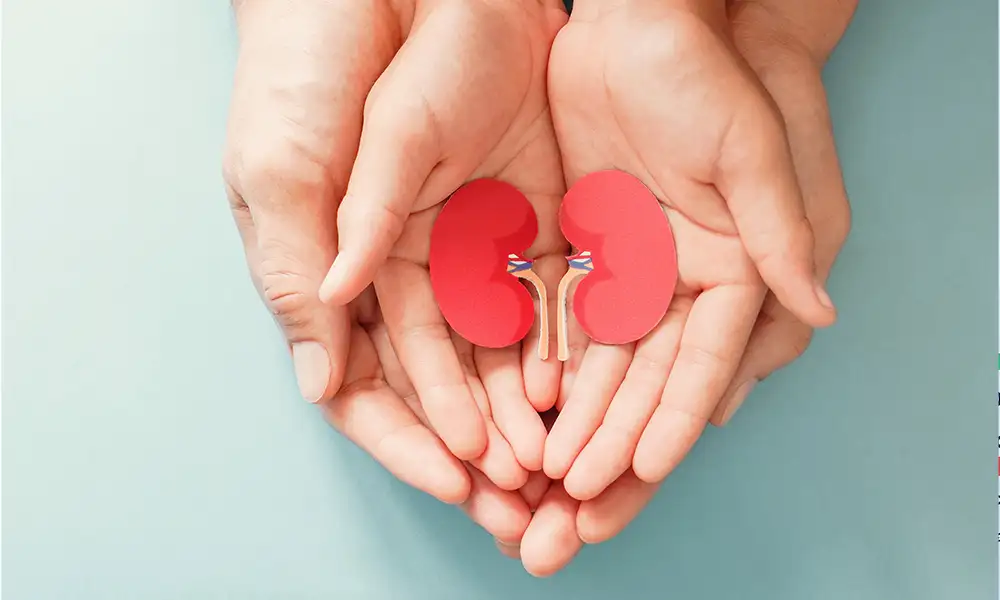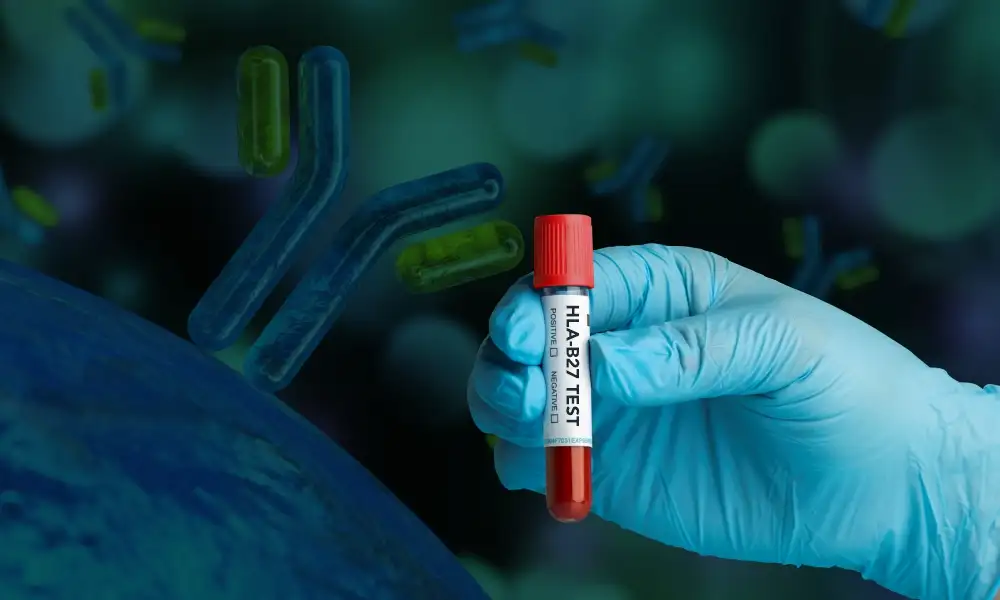Kidney Health - Types, Causes & Symptoms
- April 14,2022
- 2 Min Read

Kidneys are a pair of bean-shaped organs. They're present just below our rib cage, one on each side of our spine. Filtering the blood and eliminating waste through urine is its primary function. It also regulates fluid balance and helps maintain proper electrolyte levels in the body.
What are the types of kidney conditions?
There are several types of kidney conditions based on abnormalities:
- Kidney Stones (Nephrolithiasis): Kidney stones are one of the most common kidney problems. A condition where minerals and other substances in the blood crystallize and form solid masses (stones) in the kidneys.
- Kidney Infection (Pyelonephritis): A specific urinary tract infection (UTI) causing kidney inflammation. The UTI usually starts in the urethra or bladder and progresses to the kidneys.
- Nephrotic Syndrome: A kidney disorder where the body excretes an excessive amount of protein in the urine/ This occurs due to damaged small blood vessels in the kidneys that filter waste and excess water from the blood.
- Chronic Kidney Disease: A long-term condition that causes increased pressure damage to the vessels, and kidney function declines, which may eventually lead to kidney failure.
- Glomerulonephritis: An inflammation occurs in the kidney's glomeruli region (a tiny structure that helps filter the blood).
- Polycystic Kidney Disease: A genetic disorder that causes the development of numerous cysts (small sacs of fluid) to grow in the kidneys resulting in interference with normal kidney function and causing kidney failure.
- Urinary Tract Infections: A bacterial infection can occur in any part of the urinary system, the kidneys, bladder or urethra.
What are the causes of kidney diseases?
The damage that leads to kidney diseases may be caused by:
- Not enough blood flowing through our kidney due to:
- Low blood pressure
- Severe diarrhoea
- Liver failure
- Heart disease or heart attack
- Serious burns
- Infection
- Using non-steroidal anti-inflammatory drugs, like aspirin, ibuprofen and naproxen
- Severe dehydration (not having enough fluid in our body)
- Severe allergic reaction
- An injury directly to our kidneys caused by:
- Blood clots in or around the kidneys
- Alcohol or drug abuse
- Some blood or blood vessel disorders
- Certain antibiotics, chemotherapy drugs, contrast dyes used during CT scans, MRI scans and other imaging tests
- A blockage in our ureters, the tubes that take urine from our kidneys to our bladder, due to:
- Kidney stones
- Enlarged prostate (in men)
- Bladder problems
- Some cancers
Symptoms of kidney diseases
Kidney diseases often go unnoticed until the symptoms become severe. One must note that the symptoms of acute kidney diseases differ depending on the cause and may include:
- Decreased production of urine
- Swelling of the legs, ankles, and area around the eyes
- Nausea
- Fatigue or tiredness
- Shortness of breath
- Chest pain or pressure
- Blood in urine
These symptoms can be related to other conditions; hence, regular kidney tests are recommended to ascertain the source and keep the kidney healthy.
What are the risk factors for developing kidney diseases?
Comorbid conditions or events often accompany kidney diseases. Conditions that can increase our risk of kidney diseases include:
- Diabetes
- High blood pressure
- Heart failure
- Advanced age
- Liver diseases
- Being hospitalized for a severe illness that requires intensive care
- Certain cancers and their treatments
- Family history
Recommended tests for kidney diseases
Diabetes is one of the common causes of chronic kidney disease. Most of the kidney-related ailments are often symptomless, we at Suburban Diagnostics offer a wide array of Kidney Function Test, which include:
- CBC
- Kidney Function Testing
- Creatinine
- Urea
- Uric Acid
- Electrolytes
- Total Protein, Albumin, Globulin
- Calcium
- Phosphorus
- Cystatin C
- Routine Examination of Urine
- HbA1c
- Cholesterol
We also provide renal biopsy and all kinds of specialised testing for kidney related disorders.
How to keep your kidney healthy?
- Monitor weight and eat a healthy diet.
- Keep a track on your blood sugar and cholesterol levels.
- Drink plenty of fluids. Ensure you stay hydrated.
- Do not smoke or drink too much alcohol.
Want to book a test? Fill up the details & get a callback
Most Viewed
Premarital Health Screening
- 20 Min Read
Typhoid - Signs and Symptoms
- 3 Min Read
Home Isolation Guidelines - Covid-19 Care
- 5 Min Read
HLA B27 Detection: Flow Cytometry & PCR
- 1 Min Read














